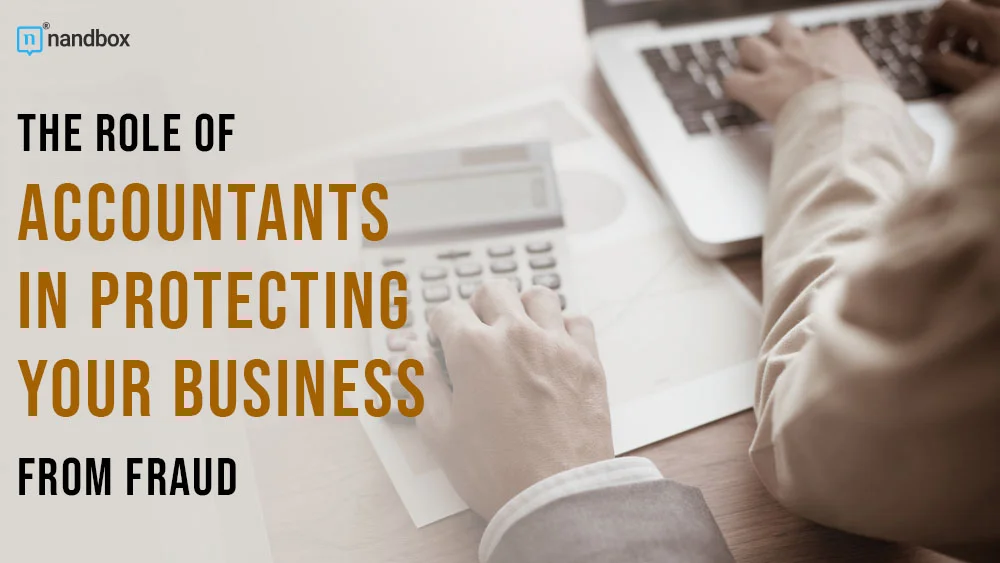Businesses mainly hire accountants to manage their financial statements. Ensuring that their expenses and earnings are all well documented. In turn, these documents can be used for a variety of business operations—for tax compliance, as the basis for sales forecasts. Or as a gauge to see whether the business remains profitable or not, among other things. But a trustworthy accountant can also be instrumental in preventing your business from falling prey to scams and frauds. To illustrate, here are the roles of accountants and how they help protect your business from such threats:
Protecting Your Business from Fraud: The Role of Accountants
1. They’ll Increase Transparency in Your Business’s Finances
In a 2022 Global Economic Crime and Fraud Survey by PwC, it was reported that 31 percent of disruptive fraud experienced by companies was caused by internal perpetrators. Having an accountant on board will mean promoting a culture of transparency in your business and can thus act as a deterrent for such bad actors.
The role of accountants is to document your finances and thus be privy to the flow of money in and out of your company. This means that they can quickly catch on any attempts at internal misconduct, such as falsification of financial records.
To have that assurance on your side, prioritize looking for accountants Dunedin entrepreneurs trust that have an excellent track record and the expertise to handle the job well. Think of it as an investment for your company, which will allow you to reduce the possibility of fraud issues within your business.
2. They’ll Conduct Risk Assessment with You
People often fall for scams because they are enticed by offers that seem extremely appealing at first glance. For instance, individuals frequently fall for phishing scams when they are told they’ve won a large sum of money or an all-expenses-paid trip. Similarly, scams that claim to be collecting fees or facilitating membership sign-ups under the guise of reputable organizations or agencies can also deceive people.
Unfortunately, this type of lure can also be used to trick business employees into falling for frauds or scams.
If you’re not careful and if any of your employees end up falling for these. You risk exposing sensitive information about your company to the perpetrators as well as losing money. This is particularly concerning when dealing with ecommerce sales tax calculations, where fraudsters might pose as tax authorities to exploit businesses unfamiliar with complex cross-state requirements.
The role of accountants can include providing businesses with risk assessment services. And yours may help you spot the trappings of a potentially fraudulent deal. Given their experience, accountants excel at reviewing prospective transactions to determine their legitimacy and identify any potential vulnerabilities.
In the same vein, your accountant can alert you of potential risks in your industry and give further guidance on how you can protect your business against fraudulent transactions. Simply put, you can bank on their expertise if you want to gain knowledge of the common fraud risks that come with doing business in your sector.
3. They Can Help Set Up Internal Controls for Your Company
In a general sense, internal controls refer to systems put in place to catch issues that arise and to mitigate these issues, if not outright prevent them from happening. Your hired accountant will be able to help you set up internal controls in various financial aspects of your business. These controls should deter instances of fraud and keep your company safe from them.
There are three kinds of internal control that you can put in place with the help of your accountant. Preventive controls aim to prevent fraud from occurring initially. Detective controls focus on discovering any fraudulent activity that manages to bypass your preventive controls.
Your accountant will actually set these all up as they go about their routine tasks. For example, accurate reports and records are already a kind of preventive control. Making it more difficult—if not impossible—for fraudulent attempts to slip through your financial system.
Meanwhile, checks and reviews done to your bookkeeping ledgers can be forms of detective control. As your accountant will be able to spot if there are any irregularities in them. And should there be any irregularity, or if you become a victim of fraud. The guidance that your accountant can offer you on how to prevent it can fall under the category of corrective control.
4. They’ll Offer Advice to Help Fortify your Business Against Fraud
Of course, you may want to strengthen your business security measures to better protect it against fraud and scams. But where exactly should you start? It is here that your accountant’s expertise will be particularly useful. They can help make your business less vulnerable to fraudsters and other bad actors by looking over your current business structure. Particularly how you handle your finances.
For example, perhaps you only have a single person handling all your bookkeeping. Given how risky this can be. Your accountant may advise you to have at least another bookkeeper to ensure that proper checks and balances are in place.
Let Your Accountant Work with You to Protect Your Business Finances
Any business, whether big or small, can be a target of frauds and phishing scams. Businesses also stand more to lose if they fall victim to fraudulent activity. As they’ll not only have to deal with any stolen funds but also a damaged reputation should their customers find out.
Don’t wait until it’s too late to seek the help of a trustworthy accountant. Their intervention may spell the difference between long-term financial failure and long-term financial success for your business.




